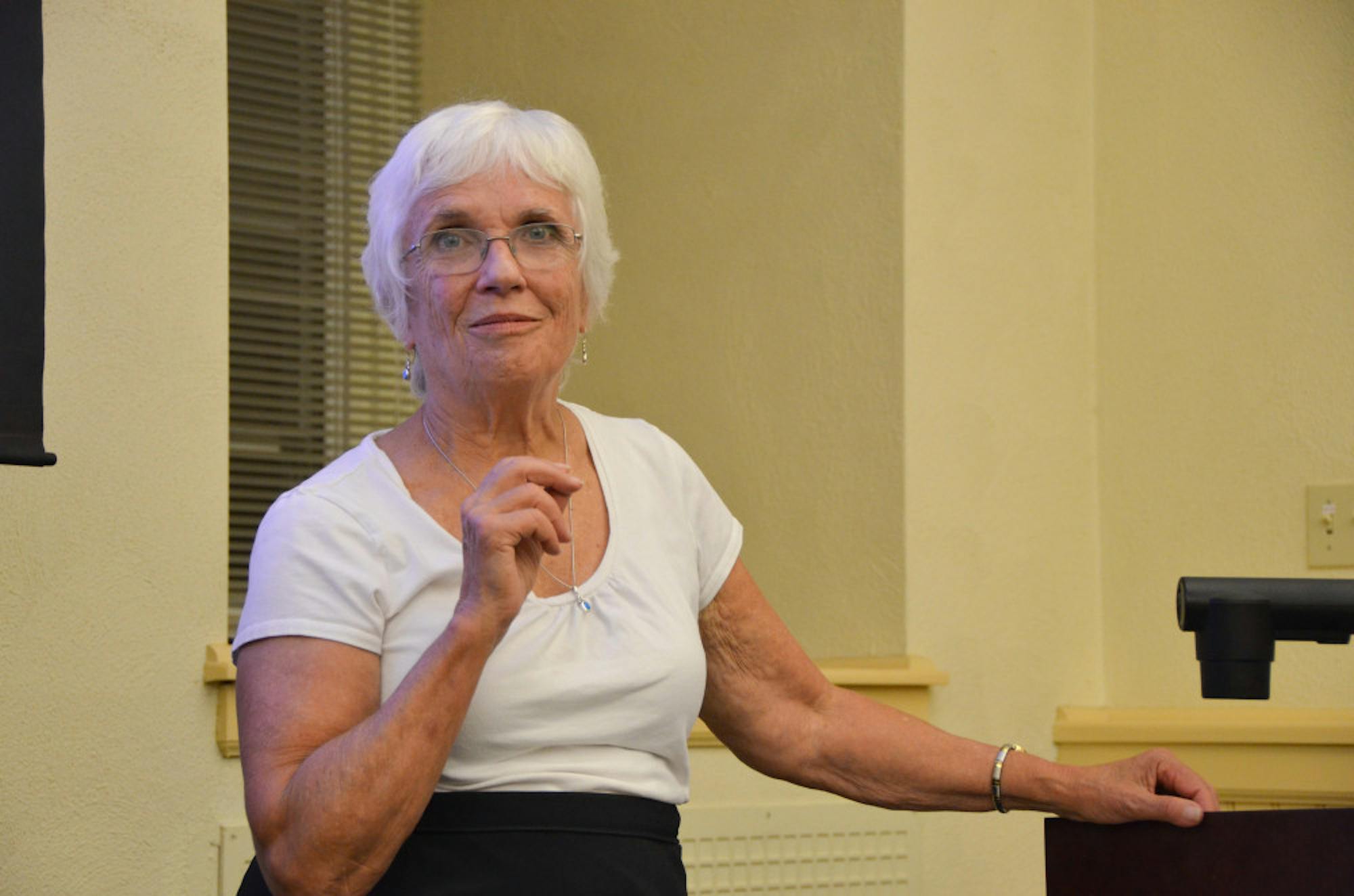Massachusetts State Senator Pat Jehlen met with a group of about 25 students in Paige Hall Terrace Room yesterday at 6 p.m. for a discussion about the long term-effects of charter schools and why she believes voters should vote against the Massachusetts Authorization of Additional Charter Schools and Charter School Expansion Initiative, also known as Question 2, on the Massachusetts State ballot on Nov. 8.
Sophomore Nate Krinsky, president of Tufts Progressive Alliance, introduced Jehlen at the beginning of the event, which was sponsored by Tufts Progressive Alliance, Tufts Democrats and JumboVote.
Jehlen's talk centered around four reasons she thought students should vote down Question 2, which proposes raising the maximum number of charter school expansions per year and removing limits on money allocated to them from district schools.
"Right now, there's a limit on how much district school funding can go to charter schools," she said. "A ‘Yes’ on Question 2 would eliminate those limits, and we will have a growing set of selective, privately managed schools."
According to Jehlen, the proposal will take more money from district schools.
"Charter and district schools are funded from the same pot of money," she said.
Jehlen explained that when charter school proponents say that charter schools actually increase the total amount of money allocated to the Department of Education, they are referring to a five-year reimbursement formula that should return 225 percent of the lost funds to district schools; however, this formula has not been fully funded in recent years.
"Unfortunately, it's a shock absorber, not a win for all," she said.
Jehlen listed examples of lost funding in Massachusetts district schools that led to programs being cut. These included Snowden International School, which had to cut its Japanese program, and Charlestown High School, which had to cut its Diploma Plus program that supported students who struggled academically, according to Jehlen.
She went on to argue that charter schools do not educate all students.
According to Jehlen, under 10 percent of students in Brooke Charter School are learning English as a second language, compared to 30 percent in other Boston district schools. There are also half as many students with learning disabilities at this charter school than in district schools, she said.
Additionally, she said that the fact that the Massachusetts Board of Elementary and Secondary Education decides when charters should be granted for schools is problematic. She noted that the Board of Education is not responsible to voters and has repeatedly voted against the majority preference because it does not look at the effects these schools have on other children in public education.
Finally, Jehlen said that because public education is already underfunded, funding new charter schools will require that money be diverted from other places.
"We'll cut from somewhere," Jehlen said. "It might be the highways, or the T, or parks, but it will probably be from low income kids in Boston."
State Senator Pat Jehlen discusses Question 2






